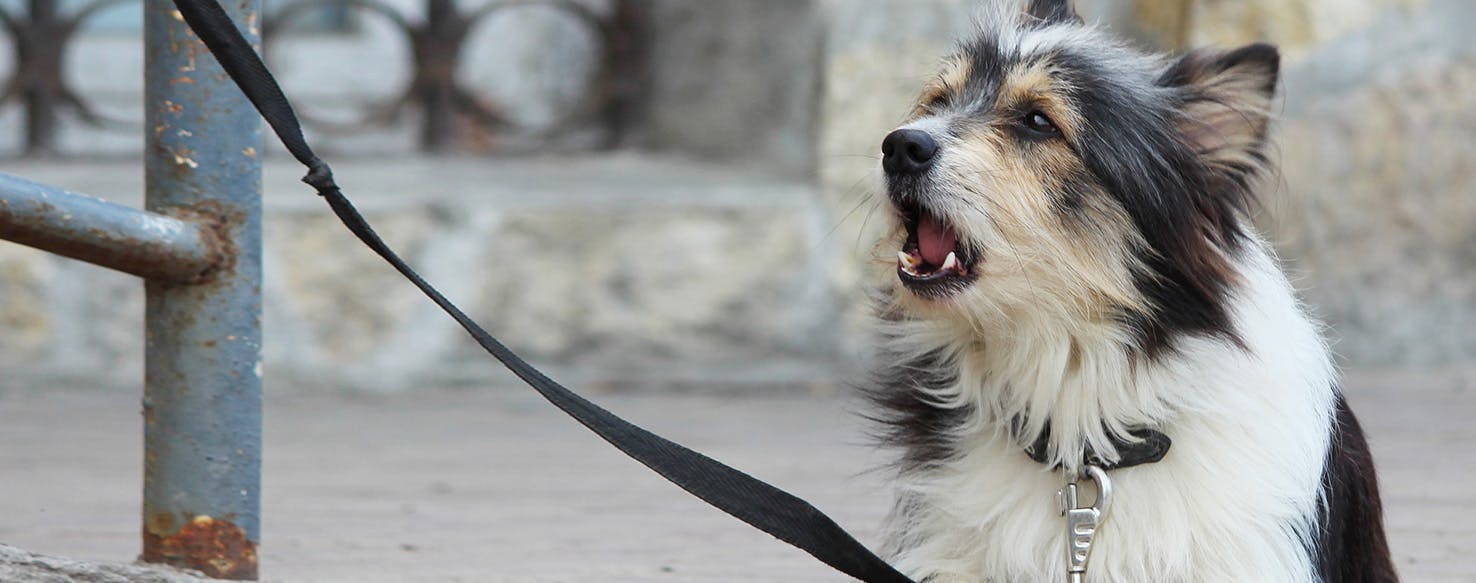Who knew it? The definition of a cough is "A sudden, explosive exhalation of air."
Wow, makes a cough seem quite exciting, rather than that annoying sound your partner makes when you're trying to sleep.
In people, we tend to link the common all-garden cough to infections, such as a cold or the flu. Of course, occasionally they are more serious and the result of a chest infection, pneumonia, or bronchitis. But on the whole, when we hear someone coughing our reaction is to shuffle away so we don't catch their bug.
But what about dogs?
Can Dogs Get a Cough?
YES!
However, coughs in dogs have almost a whole medical dictionary's worth of possible causes, which means visiting the vet is always in the dog's best interests.
As to whether we can infect a dog with our cough or vice versa, most bugs are dog-only or people-only. The exception is Bordetella (one of the causes of kennel cough), which can cross the species divide. The people most at risk are those with weak immune systems, such as the very young, the elderly, or those on chemotherapy.
Does My Dog Have a Cough?
The symptoms speak for themselves:
-
A sudden forceful expulsion of air (OK, yes, a 'cough')
-
Some coughs are dry and harsh, others tickly, whilst some moist and gurgly
-
Lack of energy
-
Reduced appetite
From mild infections to serious parasitic conditions, there is a whole spectrum of potential causes. These include:
Your vet reaches a diagnosis through a combination of taking a history, examining the patient, and running tests. Refer to the links above for a more detailed run down on diagnosing each condition.
How Do I Treat my Dog's Cough?
First and foremost, it's important to find the reason behind the dog's cough. This is because treatment for heart disease is very different to a cold. However, as a general rule in a dog that is otherwise well and a simple cold suspected, do the following:
-
Isolate the dog: Avoid contact with other pet pals as he's likely to be infectious
-
Rest: Exercise aggravates coughs.
-
Humidify the atmosphere: A steamy room, such as a shower room, can loosen mucus and ease breathing.
-
Cough medicine: Human medications containing codeine, hydrocodone, or dextromethorphan can soothe a cough. However, NEVER give a product that contains xylitol and always check a specific cold remedy with your vet before administering to the dog.
Follow the links to the above condition guides to get advice from our in-house veterinarian.
How Is a Cough Similar in Dogs and Humans?
A cough is caused by irritation of the airways, and this is the same regardless of species. Reasons for the irritation can be:
-
Fluid within the airways: Such as congestion from heart disease
-
Infection: Such as the common cold or pneumonia
-
Irritation: Most usually due to infection, but occasionally down to a foreign body.
How is a Cough Different in Dogs and Humans?
The difference between people and dogs largely lies in the diverse causes of cough in the dog, e.g., early stage distemper can show up as a cough. Also, dogs don't use handkerchiefs and the risk of them picking up a bug is higher dog-to-dog, than person-to-person.
Case Study
A pet parent collects their dog from the boarding kennel where the latter had spent the past 10 days. The dog was fine at first, but has been home four days when he starts to cough. The cough develops into a harsh, hacking cough that keeps the dog awake at night.
A trip to the vet later and a diagnosis of 'kennel cough' is made. The dog has an anti-cough medicine to take at night to help him rest. For now, the dog is not on antibiotics as its suspected the cause is viral. The owner is to monitor the dog and let the vet know if his pet takes a turn for the worst, at which point antibiotics may be prescribed for a secondary bacterial infection.


